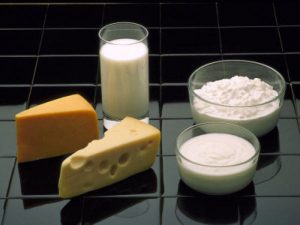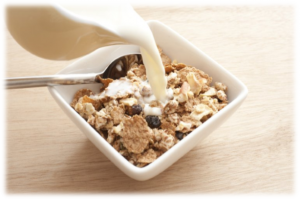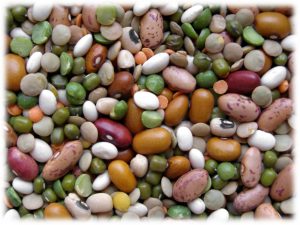
Calcium is the most abundant mineral in the body.
The majority of calcium (99%) is stored in the bones and teeth and one-percent is in the blood. Calcium is naturally found in some foods, added to others (calcium-fortified foods), and as a dietary supplement.
Functions of calcium in bones and teeth:
- Calcium and phosphorus, along with other nutrients form the hard structure that make bones and teeth strong.
- During the lifecycle, the body continually breaks down old bone (resorption) and forms new bone.
- The rate and balance of these processes change with age.
- During growth in children and adolescents, bone formation is greater than bone resorption.
- Through early and middle adulthood, the rate of both processes is about equal.
- As people age, especially for postmenopausal women, the rate of bone resorption is greater than formation, which causes bone loss and increases risk of osteoporosis.
Functions of calcium in the blood:
- Maintains a regular heartbeat.
- Helps blood clot properly.
- Supports proper muscle and nerve function.
- Aids in releasing hormones for body processes.
How Much Calcium Do You Need?
| Life Stage | Calcium (milligrams/day) |
| Children, ages 1-3 | 700 |
| Children, ages 4-8 | 1,000 |
| Youth, ages 9-18 | 1,300 |
| Men, ages 19-70 | 1,000 |
| Men, 71+ | 1,200 |
| Women, ages 19-50 | 1,000 |
| Women, ages 51+ | 1,200 |
Source: Institute of Medicine, 2010

Food Sources of Calcium
The main sources of dietary calcium for most Americans are dairy products. Milk, yogurt, and cheese are considered excellent sources of dietary calcium. Fat-free and low-fat dairy foods are suggested to limit saturated fat and cholesterol. For persons with lactose-intolerance, lactose-free milk and yogurt are suitable alternatives. Hard cheese contains very little lactose and can be consumed by people with lactose intolerance.
Non-Dairy Calcium Food Sources

There are several non-dairy foods that can help meet your daily calcium requirement:
- Calcium-fortified foods and beverages such as soy products (tofu), hot and cold cereals, fruit juices, and milk substitutes.
- Fish with edible soft bones, such as sardines and canned salmon.
- Select legumes such as mature soybeans, green soybeans (edamame), white beans, kidney beans, and navy beans.
- Some dark green leafy vegetables such as collards, beet greens, mustard greens, turnip greens and Chinese cabbage.
Click here for more information about calcium.
 0
0


